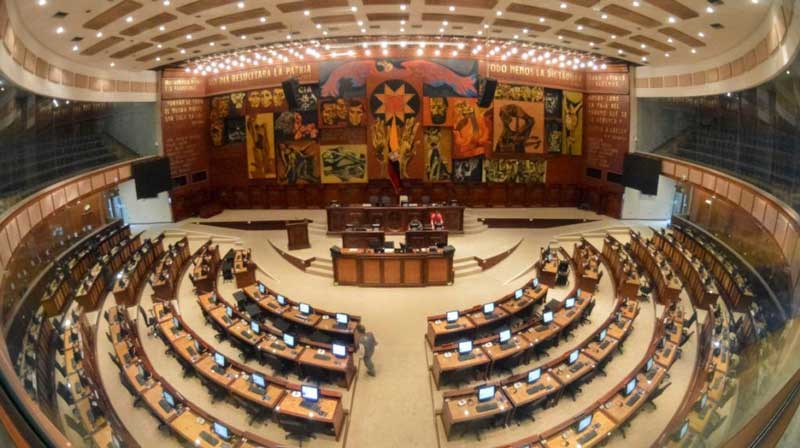Among investors, the idea that Ecuador is ungovernable is gaining strength as the country’s risk perception continues to grow due to increasing political uncertainty and recent defeats suffered by President Guillermo Lasso in the Constitutional Court.
Investment banks are sounding alarm bells, warning that Ecuador’s country risk reached its record point in 36 months on August 2, 2023, and if the current scenario of political uncertainty and ungovernability continues, everything indicates that it will only worsen.
On that fateful day, Ecuador’s country risk stood at a staggering 2,018 points, positioning it as the country with the second highest risk indicator in Latin America, surpassing even Argentina, a country known for its economic volatility. This significant increase in country risk has far-reaching implications for investors, as it indicates a higher likelihood that Ecuador may default on its obligations to creditors, leading to potential financial upheaval.
Investors see weak governance
The rise in country risk is attributed to a combination of internal and external factors that are contributing to the growing concern among bondholders about Ecuador’s governance.
The inability of President Lasso to garner sufficient support for his proposed economic reforms from the Constitutional Court has raised doubts about the country’s ability to govern effectively.
Siobhan Morden, managing director of Santander Investment Securities, which is part of the Spanish bank Santander, warns that the weak governance of the political and judicial establishments is refusing to recognize or address structural economic problems, further exacerbating the risk perception.
The obstruction faced by the dissolved National Assembly has extended its reach to the judiciary, with the Constitutional Court now being accused of blocking investments and undermining the potential for economic growth.
The court has given a favorable opinion for an economic reform that reduced the Income Tax paid by natural persons but rejected other critical proposals, including the free zone law, the restructuring of educational loan debts, and the bankruptcy law.
Additionally, the court suggested renegotiating several articles of the trade agreement between Ecuador and Costa Rica. Such actions have only added fuel to the fire of uncertainty surrounding Ecuador’s political stability and economic prospects.
Fear of Correísmo and ITT consultation
Adding to the complexity of the situation is the looming possibility of correísmo’s return to power.
Correísmo, a political movement associated with statist policies, has gained popularity, and the market perceives an imminent victory for this movement in the upcoming presidential elections on August 20th.
The international market still remembers past correísta policies, such as the cessation of payments on foreign debt and the renegotiation of contracts in the oil sector, as well as the expulsion of oil companies.
The potential return of correísmo adds another layer of political risk for investors, who fear a regression to policies that could further undermine Ecuador’s economic stability.
Moreover, the uncertainty extends beyond the political landscape, as Ecuador faces a popular consultation regarding the oil from the ITT oil block. The referendum proposes leaving the oil underground, which could result in Ecuador ceasing to extract 55,000 barrels per day, leading to a loss of $1.2 billion per year in oil income for the State.
This potential outcome further complicates Ecuador’s public finances and weakens its ability to meet its debt payment obligations.
Ecuador’s external environment also plays a significant role in exacerbating its risk perception. The recent reduction of the United States’ external debt rating has triggered a contagion effect in all markets, particularly emerging ones like Ecuador.
When there is a greater perception of risk, investors often seek safe-haven assets like gold, which further impacts countries already facing ungovernability scenarios like Ecuador.
Added to all of these challenges, President Lasso has proposed an urgent decree law to mitigate the potential consequences of the El Niño phenomenon, which is estimated to cause losses ranging between $3.0 billion and $4.0 billion. However, the decree’s approval remains uncertain, raising concerns about Ecuador’s preparedness to face climatic threats and further adding to its economic woes.
Bondholders are closely monitoring the situation, and Ecuador’s low growth rate of 2%, coupled with a structural fiscal gap of 3%-4% of GDP and limited financing alternatives, further contribute to the perception of a weak debt payment capacity. As a result, the price of medium-term bonds is heavily discounted, affecting Ecuador’s overall financial stability and creditworthiness.
Despite these challenges, there is still hope that Ecuador can navigate through these turbulent times. The country’s leaders must prioritize stability and work together to address the underlying economic issues that have led to this point of crisis.


0 Comments